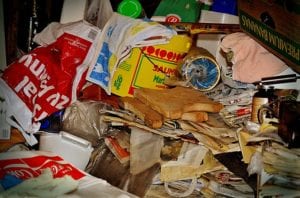
Welcome back, and thanks for joining us again for this difficult discussion on predictive risk assessment as it’s used by CPS to determine if parents are likely to harm their children. In the previous article we looked at an article written by Virginia Eubanks that explained the problems with predictive risk assessment, and how it fails poor families. We wrapped up by looking at two cases Eubanks was comparing, with the intake screener named Pat Gordon she was assisting at the Allegheny County Office of Children, Youth and Families (CYF) child neglect and abuse hotline. One was more likely to be flagged as a being at risk for future abuse. But which one, and why?
Risk assessment allows screeners a LOT of latitude!
As Eubanks points out, screeners who listen to calls and log them in the system have a lot latitude in determining which parent behaviors are considered abusive or neglectful. How? Because they get to decide how to categorize what’s being reported, which means right from the start the information being logged is subject to a certain bias.
Many of the categories are obvious: ‘sexual abuse‘, ‘physical assault’, ‘abandoned child’ and ‘failure to protect’. But many are not so cut and dried. Categories like ‘homelessness’, ‘inadequate clothing’ and ‘insufficient food’ are less signs of neglect than there signs of a struggling family. So what does that mean for poor families? Is being poor a sign that you’re more likely to abuse or neglect your children? According to many risk assessment tools it does!
As Eubanks points out, the line between poverty and neglect isn’t very clear!
In reality, being poor and being a bad parent are two entirely separate subjects. But when you view parents through the lens of risk assessment software, the line is blurred. Sometimes it isn’t there at all! For example, a poor parent may have very little food in the house, but from a risk assessment standpoint, that parent is more likely to be labelled ‘neglectful.’
The same goes for a poor parent who works two minimum wage jobs just to make ends meet. Risk assessment software is likely to label them as a parent who fails to properly supervise their child because they’re rarely around, and therefore their children are neglected. But having an untidy house doesn’t make you a bad parent. Struggling to put enough food on the table doesn’t make you a bad parent. And working two jobs to keep the heat turned on and the lights burning doesn’t make you a bad parent.
Unfortunately, being poor means you’re more likely to be profiled as neglectful!
We live in a world where people make snap judgements all the time. Whether or not we realize it, we are always deciding how we feel about people and situations based on what we see of them. And how we interpret what we see is defined by our life experienced. Which means there is no “industry standard” to compare things to. We see them as they are, and we just them based on ou personal yardstick. And when it comes to CPS, this kind of snap judgement making is what leads to incorrect profiling!
CPS is frequently wrong about parent in Michigan! Don’t let yourself become one of them! If you or a loved one have been accused by CPS of abusing or neglecting a child, call the experienced CPS defense attorneys at The Kronzek Firm, at 866 766 5245. We have spent decades helping the families of Michigan fight for their parental rights. We can help you too!

